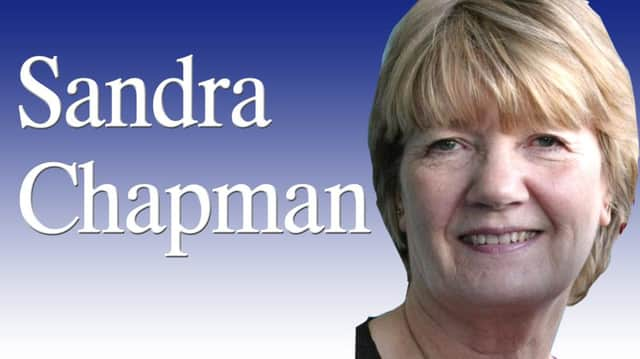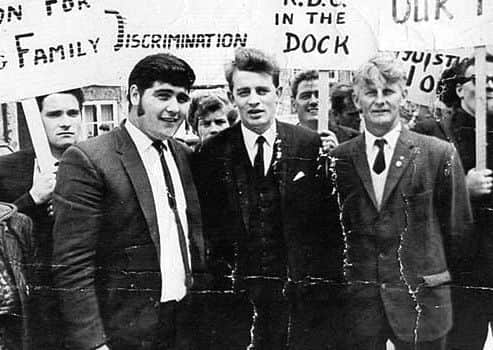Are we any further forward half a century on from first civil rights march?


Perhaps it was that battle to survive on a daily basis that put politics here on the back burner. The country had beaten the arch tyrant Hitler, yet here in Ulster we had the hidden tyranny of discrimination, a fault line which was to explode spectacularly spewing out grievances which we talk about to this day, grievances which Sinn Fein continue to exploit at every opportunity.
Ours was not a political household – neither of my parents voted – so I grew up in what would now be known as a rural backwoods where men struggled to find work after the war, forcing many of them to take the ferry to Liverpool to find work in dockyards, many travelling on to try their luck on English farms.
Advertisement
Hide AdAdvertisement
Hide AdI doubt then if many in rural Ulster realised the political boil that was festering in the country which was to lead to the first Civil Rights march held in 1968, exactly 50 years ago this month. That had been preceded by an event two months previously which would go down in history, an event which shone a light on the discrimination practised by our politicians, particularly in local government.


I remember hearing at the time of a nationalist politician Austin Currie MP and some others occupying a council house in Caledon, Co Tyrone, in protest at the discrimination practised against a Catholic family who were deprived of social housing in favour of a 19 year old Protestant girl who just happened to “work at a unionist politician’s solicitor’s office’’ despite 269 ahead of her on the waiting list. The girl was due to be married. I remember my mother being horrified at the injustice of it.
In August that year of 1968 the then relatively unknown Austin Currie helped organise the first civil rights march from Coalisland to Dungann, a march which had been banned by politicians. The nationalist community never looked back. The next year saw the rise of the Civil Rights movement. After half a century we look back on that period and wonder how unionist politicians ever thought they could sustain only their view of how the country should be run.
Today we are in the farcical situation of our two leading political parties having shared power then falling out, yet still being handsomely paid for the privilege of doing very little. They claim to want to share power but on their own terms.
Advertisement
Hide AdAdvertisement
Hide AdAustin Currie left Ulster politics in 1989 to become a Fine Gael TD for Dublin West. Interviewed in the Belfast Telegraph he says he regrets the loss of lives during the Troubles that ensued. “It wasn’t inevitable that it would happen,’’ he said, stressing that non-violence was “at the heart of the civil rights movement.’’ While he wishes the violence hadn’t happened, he believes the current-power-sharing impasse at Stormont to be “a totally hypocritical situation as elected representatives are being paid when the Assembly isn’t sitting’’.
Others would say housing allocations in 1968 didn’t discriminate against Catholics. I know that much earlier I had Catholic school friends living in council housing which my family also lived in for a short time to make it easier for us to get to school. Obviously some politicians were making efforts to practise equality but Rome wasn’t built in a day and that mantra still exists. We’ve had power sharing for a couple of decades. This difficult period we are currently in may just be a blip. We may look back in 10 years’ time and wonder why it happened. Who knows?
Austin Currie believes unionists had “everything they wanted’’ in those early days. Not quite. They didn’t have control of the ballot box which enabled him to become a Nationalist MP for East Tyrone from 1964 until 1972.